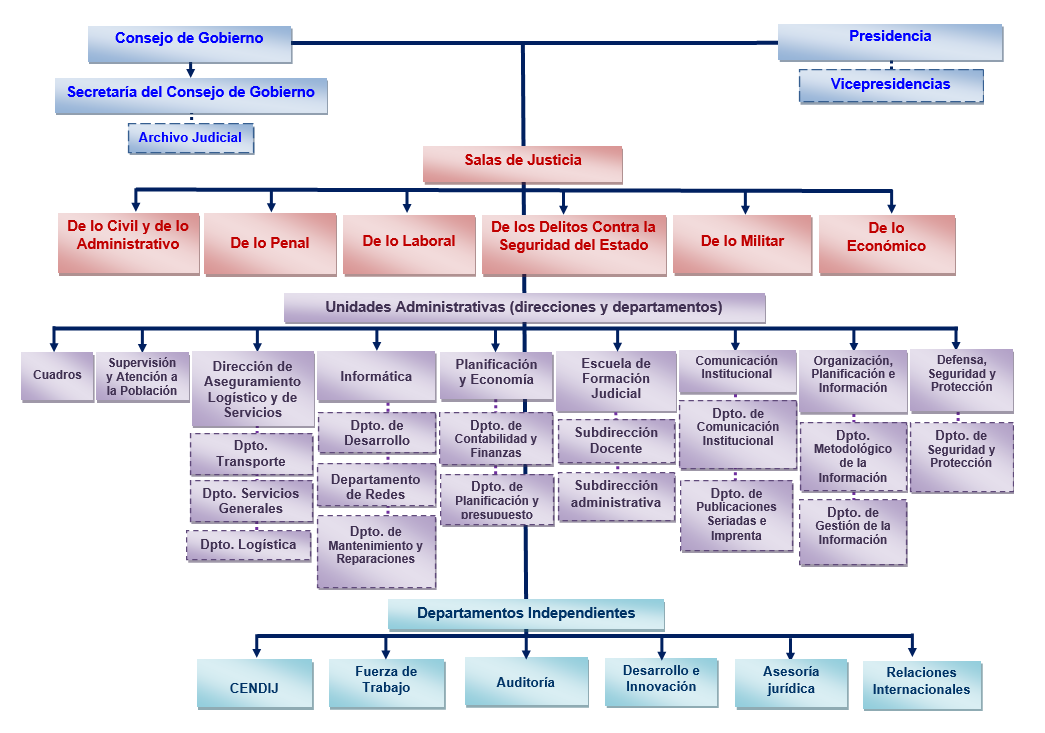Integration and Operation
The Supreme People's Court is composed of its president, vice presidents, presidents of courtrooms and other professional judges and the laymen assigned to them. All professional judges have the character of holders and amount to 48, among which are the president, four vice-presidents and the six presidents of the room, who together with the other professional judges and the laymen who are in functions make up the Plenary, which is exceptionally constituted as a courtroom to learn about the matters that the law provides that are within its competence. The structure of the highest Cuban justice body includes the Governing Council and the courtrooms. The Governing Council is composed of the president of the People's Supreme Court, the vice presidents and the presidents of the courtroom. The courtrooms are six and have a staff of professional judges, including their presidents.
President's functions
The president of the People's Supreme Court is elected by the National Assembly of Popular Power at the proposal of the president of the State Council, without subject to any term of office.
Within its main functions, it corresponds to represent and direct the Court System, as well as convene and preside over the Governing Council of the Supreme People's Court. The latter is responsible for convening and presiding over the Plenary of the judges of the People's Supreme Court when it must be constituted for certain acts of justice.
It is also a power of the president to assign, after elected, the judges of the People's Supreme Court to the corresponding courtrooms, provide the necessary measures for the internal order of the court and exercise disciplinary functions in relation to the auxiliary and administrative staff that provides service in the referred body.
The vice presidents, like the president, are elected by the National Assembly of People's Power at the proposal of the president of the State Council, also without subject to term of office. It corresponds to these to assume the functions that the president delegates in them, as well as to replace him in the cases of temporary absence or impediment, according to the order established by the Governing Council.
Organigrama

